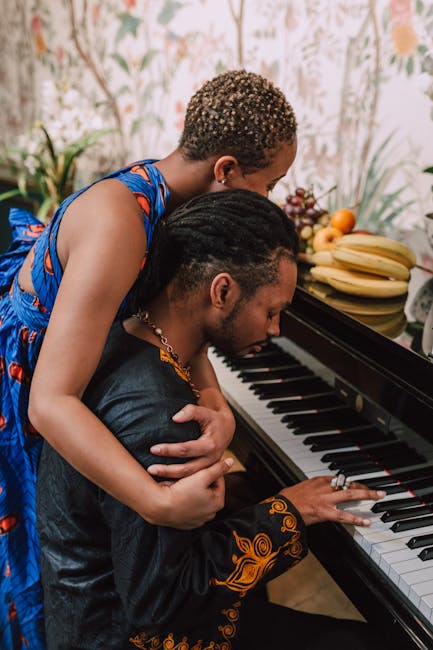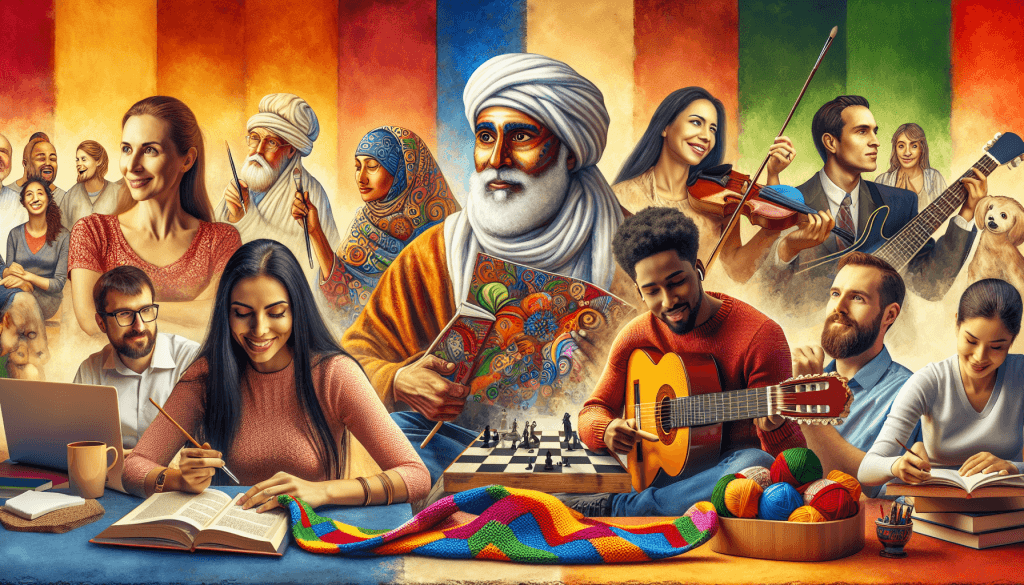The Importance Of Shared Hobbies And Interests
Shared hobbies and interests are like the glue that holds relationships together, creating a sense of connection and joy. They provide opportunities to bond, laugh, and grow together, making life more vibrant and fulfilling. Whether you’re in a romantic relationship, a friendship, or even a family dynamic, shared activities can strengthen your bond in ways you might not expect.
But why is this so important? And how can shared hobbies transform relationships? Keep reading to uncover the magic behind shared interests and how they can bring people closer.
Key Takeaways
- Shared hobbies help build emotional connections and trust.
- They add excitement and reduce monotony in relationships.
- Engaging in mutual activities promotes teamwork and collaboration.
- Even with differing interests, relationships can thrive with understanding and compromise.
- Discovering new hobbies together can create lasting memories and traditions.
Introduction to Shared Hobbies and Interests
Definition of Shared Hobbies and Interests
Shared hobbies and interests are activities that two or more people enjoy doing together. These could range from cooking and hiking to playing board games or gardening. Essentially, they are the common threads that weave relationships into something stronger and more meaningful.
Overview of Their Role in Relationships
Think of shared hobbies as a bridge. They connect two individuals, allowing them to meet in the middle and enjoy each other’s company. Whether it’s a couple binge-watching their favorite TV series or friends learning a new sport, these activities foster communication, understanding, and fun.
Importance of Fostering Shared Activities
Without shared activities, relationships can feel like two parallel lines—close but never intersecting. Shared hobbies encourage people to spend quality time together, creating memories and deepening their bond. They also provide a sense of teamwork, which is essential for any healthy relationship.

Benefits of Shared Hobbies and Interests
Strengthening Emotional Bonds
Creating Deeper Connections
When people engage in activities they both love, they naturally open up to each other. Conversations flow more easily, and laughter becomes a regular guest. This creates a safe space where emotional connections can flourish.
Building Trust and Understanding
Shared hobbies often require collaboration, which builds trust. For example, cooking a meal together involves dividing tasks and relying on each other. Over time, this trust spills over into other areas of the relationship.
Enhancing Relationship Fun and Excitement
Adding Joy to Daily Life
Life can sometimes feel like a hamster wheel—work, eat, sleep, repeat. Shared hobbies inject a dose of fun into the routine. Whether it’s dancing in the living room or solving puzzles, these moments of joy can brighten even the dullest days.
Reducing Monotony in Relationships
Doing the same thing every day can make relationships feel stale. Shared interests break this monotony by introducing new experiences and challenges. They keep the spark alive and remind people why they enjoy each other’s company.
Promoting Teamwork and Collaboration
Learning to Work Together
Hobbies like playing doubles tennis or building furniture teach people how to work as a team. They learn to communicate, compromise, and celebrate each other’s strengths.
Solving Challenges as a Team
Shared activities often come with their own set of challenges. Whether it’s figuring out a tricky recipe or completing a DIY project, overcoming these obstacles together strengthens the bond.

How Shared Hobbies Contribute to Happiness
Boosting Overall Relationship Satisfaction
When people share hobbies, they feel more connected and satisfied in their relationships. It’s like having a secret club where only the two of you are members. This sense of exclusivity can make the relationship feel special.
Creating Positive Memories Together
Imagine looking back on a scrapbook filled with photos of your shared adventures. These memories become the building blocks of a happy relationship, reminding you of the good times even during rough patches.
Encouraging Mutual Growth and Learning
Shared hobbies often involve learning new skills or exploring new interests. This mutual growth not only enriches the relationship but also makes each person feel supported and valued.

Navigating Differences in Interests
Can Relationships Work Without Shared Hobbies?
Understanding the Role of Differences
Not every relationship is built on shared interests, and that’s okay. Differences can add spice to a relationship, offering opportunities to learn from each other.
Balancing Individuality and Togetherness
The key is balance. While shared hobbies are important, it’s equally vital to respect each other’s individual interests. This balance ensures that both people feel seen and valued.
Learning to Appreciate Your Partner’s Hobbies
Taking an Interest in Their Passions
Even if you don’t share the same hobbies, showing interest in your partner’s passions can go a long way. Ask questions, attend events, or simply listen when they talk about their interests.
Being Open-Minded and Supportive
Support doesn’t always mean participation. Sometimes, just cheering them on from the sidelines is enough to show you care.

Building Shared Hobbies and Interests
Discovering New Activities Together
Exploring Mutual Interests
Start by identifying activities you both enjoy. This could be as simple as walking in the park or as adventurous as skydiving.
Trying New Experiences as a Couple
Don’t be afraid to step out of your comfort zone. Trying something new together can be both exciting and rewarding.
Creating Relationship Rituals
Establishing Regular Shared Activities
Make shared hobbies a regular part of your routine. Whether it’s a weekly movie night or a monthly hiking trip, these rituals create consistency and connection.
Strengthening Bonds Through Traditions
Over time, these shared activities can become cherished traditions, adding depth and meaning to your relationship.
Challenges and Solutions in Sharing Hobbies
Managing Time and Priorities
Life gets busy, and finding time for shared hobbies can be tough. The solution? Schedule it. Treat it like any other important appointment.
Addressing Conflicts Over Differing Interests
Disagreements are natural, but they don’t have to derail your shared activities. Communicate openly and find compromises that work for both of you.
Finding Balance Between Shared and Individual Hobbies
It’s important to strike a balance. While shared hobbies are great, maintaining individual interests ensures that both people retain their sense of self.

Conclusion
Recap of the Importance of Shared Hobbies and Interests
Shared hobbies and interests are more than just fun activities—they’re the foundation of strong, happy relationships. They foster emotional connections, add excitement, and teach valuable teamwork skills.
Encouragement to Explore and Nurture Shared Activities
If you haven’t already, take the time to explore hobbies with your loved ones. Whether it’s trying a new sport or simply cooking dinner together, these moments can transform your relationship.
Final Thoughts on Building Stronger Relationships Through Shared Experiences
At the end of the day, relationships thrive on connection. Shared hobbies are a simple yet powerful way to build that connection, creating a bond that stands the test of time.
For more insights on building meaningful relationships, check out this guide on fostering relationships with loved ones or explore ways to nurture healthy relationships for self-care.
FAQ: Exploring the Joy and Importance of Shared Hobbies and Interests
Why are shared hobbies and interests important in relationships?
Shared hobbies and interests help build stronger connections by fostering mutual understanding, creating shared experiences, and enhancing communication. They provide a foundation for bonding and can strengthen the emotional ties between individuals, whether in friendships, romantic relationships, or family dynamics.
How do shared hobbies improve communication?
Engaging in shared hobbies encourages open dialogue and teamwork, as people often discuss strategies, share ideas, or reflect on their experiences. This natural flow of communication can improve understanding and reduce misunderstandings in relationships.
Can shared interests help in making new friends?
Absolutely! Shared interests provide a common ground for initiating conversations and building rapport. Joining clubs, groups, or events centered around a hobby can help you meet like-minded individuals and form meaningful connections.
What are some examples of hobbies that couples or friends can enjoy together?
Examples include cooking, hiking, playing board games, gardening, traveling, dancing, or even learning a new skill together like painting or a foreign language. The key is to find activities that both parties enjoy and can participate in equally.
What if two people have very different interests? Can they still bond?
Yes, they can! While shared hobbies are beneficial, exploring each other’s interests can also be enriching. Trying out a partner’s or friend’s hobby shows support and willingness to connect, which can deepen the relationship even without identical interests.
How can shared hobbies reduce stress and improve mental health?
Participating in enjoyable activities with others can release endorphins, reduce stress, and foster a sense of belonging. Shared hobbies also provide a positive distraction from daily challenges and create opportunities for laughter and relaxation.
Are shared hobbies necessary for a successful relationship?
While not strictly necessary, shared hobbies can enhance a relationship by adding fun and excitement. However, mutual respect, communication, and support are equally important. A balance between shared and individual interests often works best.
What are the challenges of maintaining shared hobbies over time?
Challenges may include differing schedules, evolving interests, or a lack of motivation. To overcome these, it’s important to communicate openly, be flexible, and occasionally try new activities to keep things fresh and engaging.
How can parents and children benefit from shared hobbies?
Shared hobbies between parents and children can strengthen family bonds, improve communication, and create lasting memories. They also provide opportunities for parents to teach valuable skills and for children to express themselves creatively.
How can you discover new shared hobbies with someone?
Start by discussing each other’s interests and trying out different activities together. Attend workshops, explore local events, or experiment with trending hobbies. The process of discovering something new can be just as rewarding as the hobby itself.



